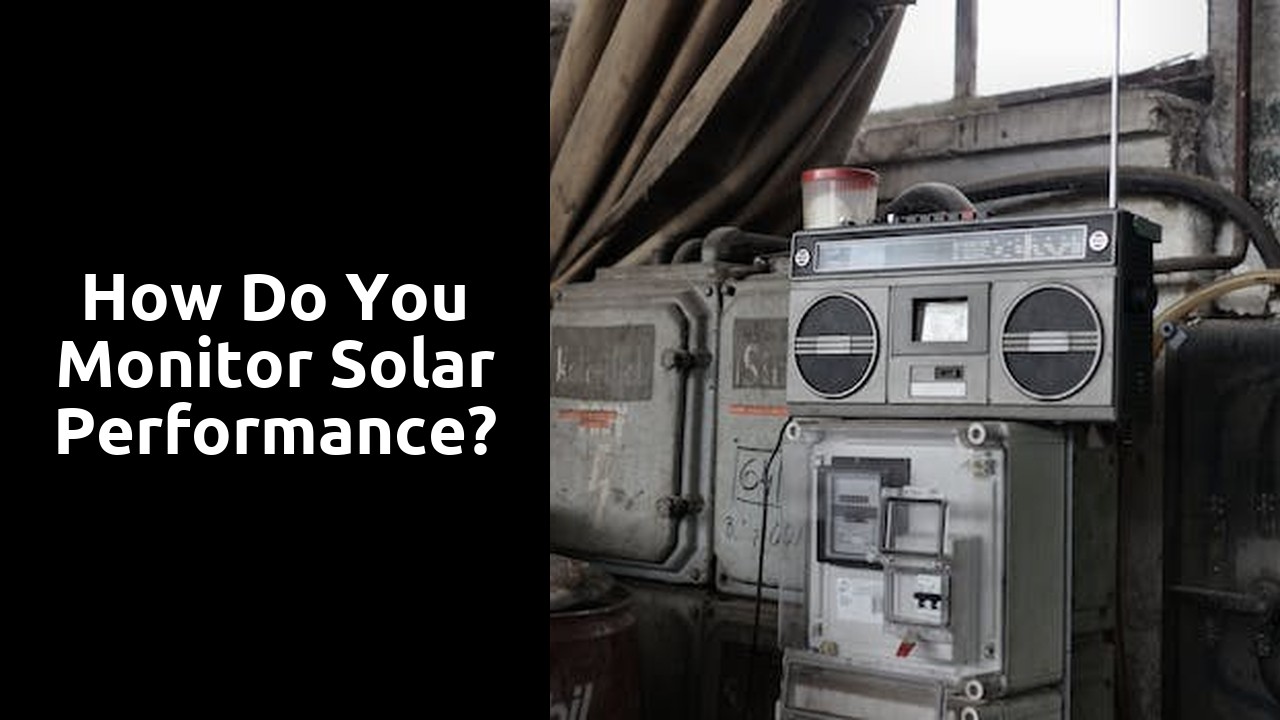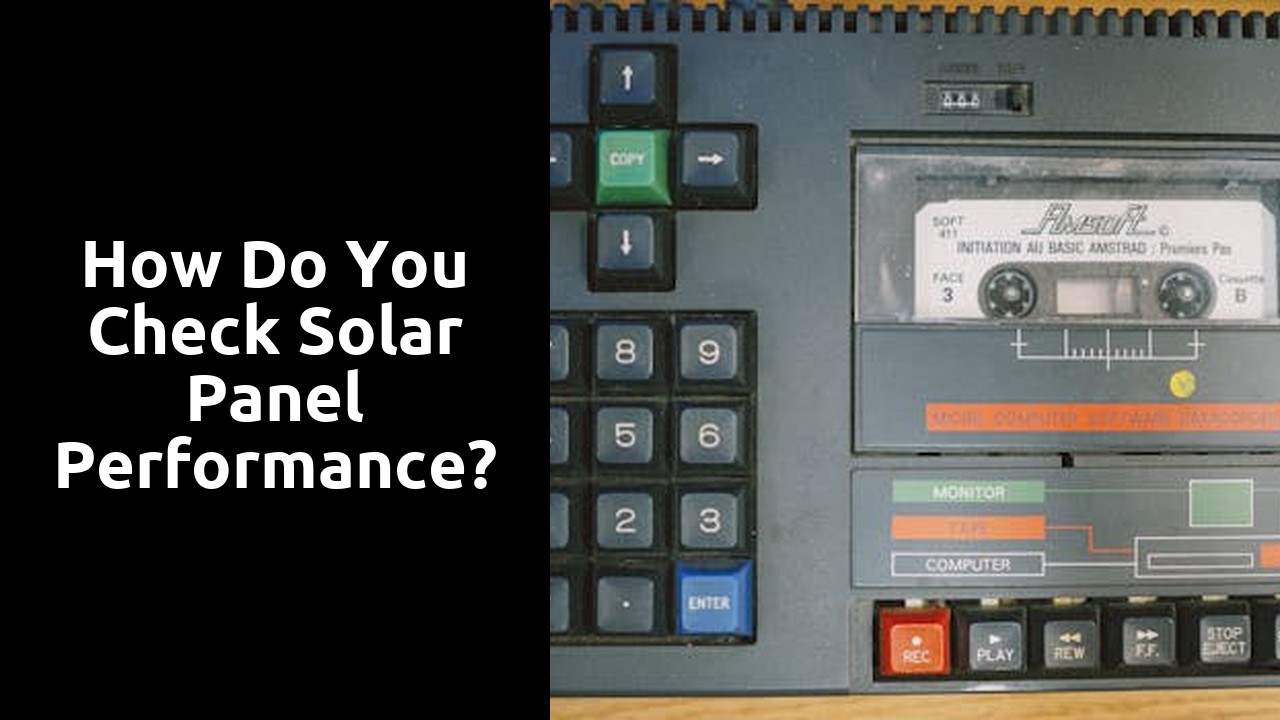
Conducting Solar Performance Audits
When it comes to ensuring the efficiency of a solar panel system, conducting regular audits is paramount. Solar panel system performance auditing involves a comprehensive evaluation of the system's overall functionality, energy output, and efficiency. This process allows for the identification of any issues or areas of improvement that may be affecting the system's performance.
During a solar panel system performance audit, various factors are considered, such as the system's installation quality, condition of the panels, and the functionality of the inverters. Additionally, data from the system's monitoring systems and meters are analysed to assess energy production levels and identify any discrepancies. By conducting these audits regularly, solar system owners can proactively address any issues and maximise the system's performance and longevity.
Analyzing Historical Energy Data
Analyzing historical energy data is a crucial aspect of monitoring solar panel system performance. By examining past energy production trends, you can identify patterns, irregularities, and potential areas for improvement. This data provides valuable insights into the effectiveness of your solar panels and helps in making informed decisions to optimize their performance. Solar panel system performance auditing through historical energy data analysis enables you to track the efficiency of your system over time and assess its overall long-term sustainability.
Furthermore, historical energy data analysis allows you to pinpoint specific periods of suboptimal performance and investigate the reasons behind them. By comparing energy production data against external factors such as weather conditions and shading, you can gain a better understanding of what influences the output of your solar panels. This information is instrumental in devising strategies to enhance solar output and maximize the benefits of your solar panel system.
Enhancing Solar Output
To maximise solar panel system performance, enhancing solar output is crucial. One effective method is to optimise panel angles according to the sun's position throughout the day. By adjusting the angles, you can ensure that the panels receive maximum sunlight exposure, leading to improved energy generation. Additionally, regular cleaning of solar panels is essential to remove dust, dirt, and other debris that can obstruct sunlight absorption. Clean panels enhance efficiency, allowing the system to operate at its full capacity.
Another key aspect of enhancing solar output is conducting weather conditions and shading analysis. By monitoring these factors, you can identify any potential issues that may be affecting the system's performance. Shading from nearby trees or buildings can significantly impact energy production, so it is essential to address these obstructions promptly. By being proactive in analysing these variables, you can optimise solar output and improve the overall efficiency of your system.
Optimising Panel Angles and Cleaning
Optimising panel angles and ensuring regular cleaning are crucial aspects of maintaining optimal solar performance. The angle at which solar panels are installed can significantly impact their efficiency. By adjusting the tilt of the panels to align with the sun's position throughout the day, you can maximise the amount of sunlight captured. This adjustment optimises the amount of solar energy converted into electricity, ultimately enhancing the overall performance of your solar panel system.
In addition to panel angles, keeping the panels clean is essential for efficient energy production. Dirt, dust, and other particles can accumulate on the surface of the panels over time, reducing their ability to absorb sunlight. Regular cleaning helps to maintain the integrity of the panels and ensures that they are operating at peak performance levels. By incorporating these practices into your maintenance routine, you can enhance the efficiency of your solar panel system and maximise its energy output.
Factors Affecting Solar Performance
Factors affecting solar performance can vary greatly depending on a range of variables. Weather conditions, such as cloud cover, humidity levels, and temperature fluctuations, play a significant role in determining the output of solar panels. Shading analysis is also crucial when considering the impact of nearby buildings, trees, or structures that may obstruct sunlight from reaching the panels. Understanding these factors is essential in optimising solar panel system performance and ensuring long-term efficiency.
When conducting Solar Panel System Performance Auditing, it's imperative to consider the geographical location of the solar panels. The angle and direction of the panels can greatly impact their performance, as they need to be positioned optimally to receive the maximum amount of sunlight throughout the day. Regular cleaning and maintenance of solar panels are also essential to ensure they are operating at peak efficiency levels.
Weather Conditions and Shading Analysis
Weather conditions play a crucial role in the performance of solar panel systems. Variations in temperature, cloud cover, and sunlight intensity can all impact the efficiency of solar panels. When conducting Solar Panel System Performance Auditing, it is essential to consider the specific weather patterns in the region where the system is installed. Monitoring weather conditions over time allows for a better understanding of how these factors influence energy production and can help in planning for contingencies.
Shading analysis is another critical aspect of maintaining optimal solar panel performance. Even small amounts of shading, whether from nearby buildings, trees, or other obstructions, can significantly reduce the amount of sunlight reaching the panels. Regularly assessing potential shading sources and taking steps to mitigate their impact can help to maximise energy production and ensure the overall effectiveness of the solar panel system.
FAQS
What is a solar performance audit?
A solar performance audit involves assessing the efficiency and output of your solar energy system to ensure it is functioning optimally.
How can historical energy data help in monitoring solar performance?
Analyzing historical energy data can provide insights into the performance trends of your solar system, helping you identify any deviations or issues.
What are some ways to enhance solar output?
Optimising panel angles and keeping them clean is a common way to enhance solar output by maximizing sunlight absorption.
What factors can affect solar performance?
Weather conditions and shading analysis are key factors that can impact the performance of a solar energy system, affecting its output and efficiency.
Why is it important to monitor solar performance?
Monitoring solar performance allows you to identify any issues early on, optimize energy production, and ensure the longevity of your solar system."""
